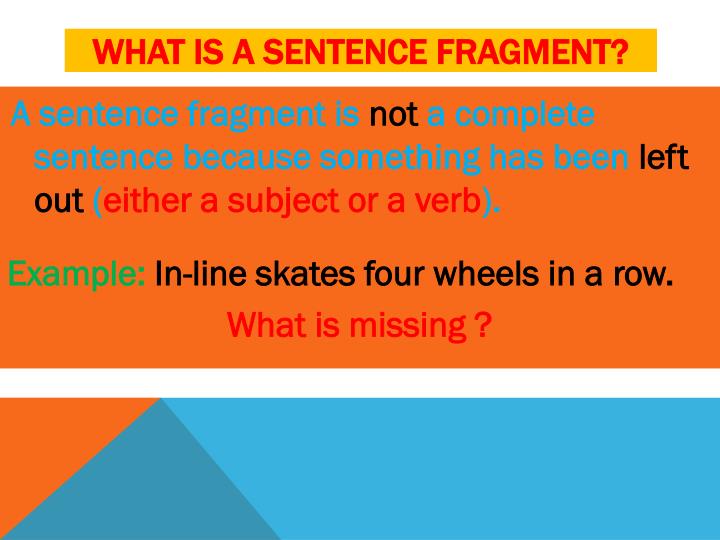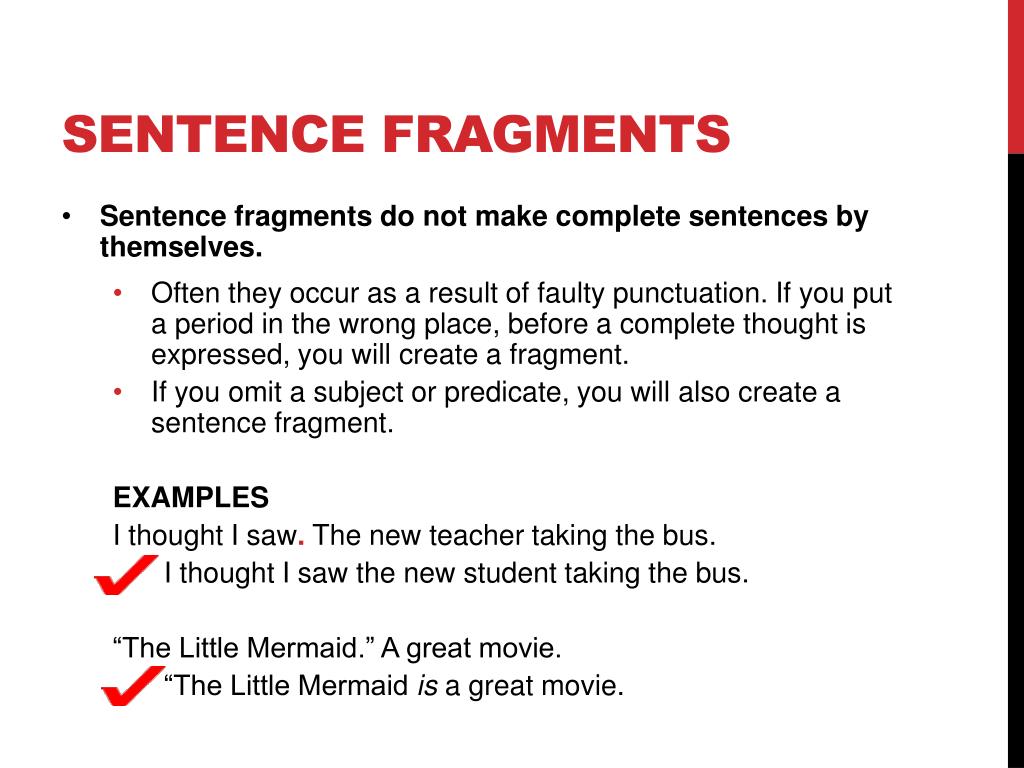

All you have to do is spot the fragment and point it out: Now that you’re all knowledgeable and stuff about sentence fragments, give these practice questions a try.

They are either missing a subject or a predicate, or they are missing a noun or a verb.Īll sentences must have a subject and a predicate to be complete. In English grammar, sentence fragments are sentences that are incomplete. Okay, so now that you understand the concept of subjects and predicates, I will explain what fragments are. It’s a predicate because there is a verb (“went”) in it, stating what the subject is doing (or the action of the subject) if there was one. Since these two words are nouns, they are stating who the sentence is talking about, thus making it a subject.Īs for sentence number 1, it is a predicate. The predicate is the second half of the sentence and states what the subject is doing it tells what action the subject is doing.įor example, in sentence number 2 (above), it says “He and Alfred.” These two words, if you remember the parts of speech, are nouns. What are Subjects and Predicates?Ĭomplete sentences are composed of a subject and a predicate.Ī subject (the vast majority of the time) is the beginning part of the sentence and states who or what the sentence is talking about. They are only one part of a complete sentence. The reason being is that those sentences are fragments.
Sentence fragment examples how to#
In this blog post, I share what they are and how to correct them.ĭo they make sense? Do these sentences sound complete?

Sentence fragments are a common grammatical error that can easily be avoided and fixed.


 0 kommentar(er)
0 kommentar(er)
